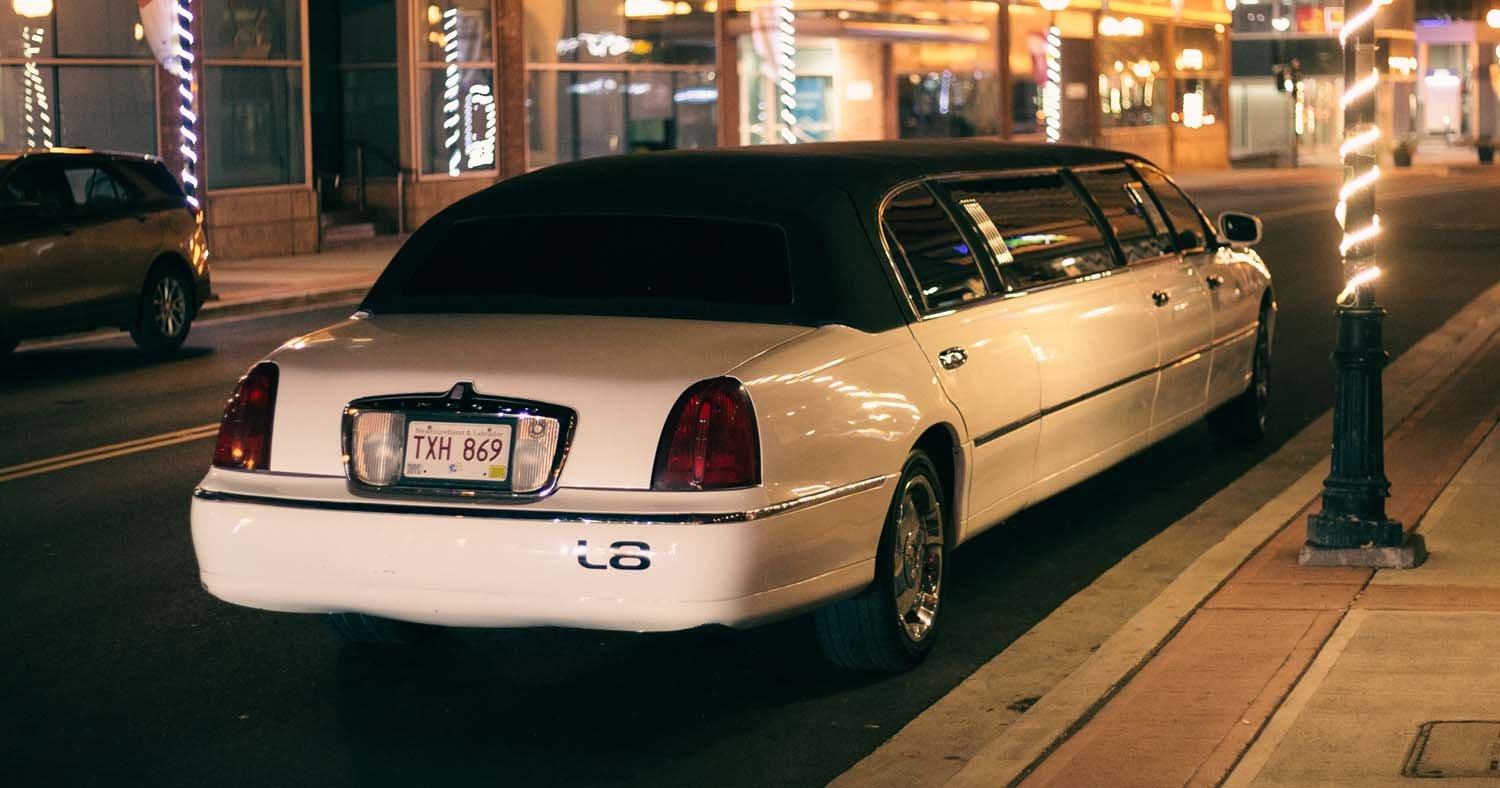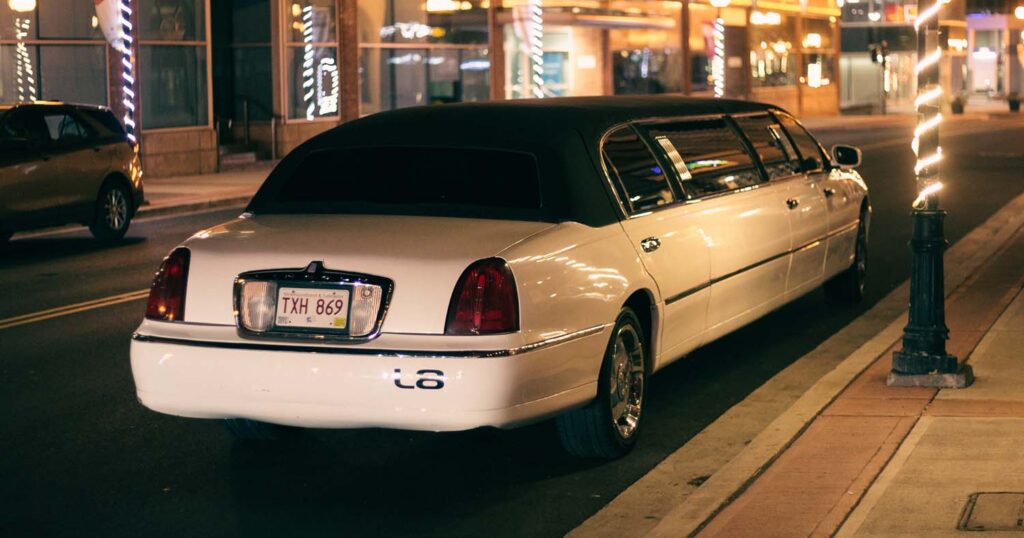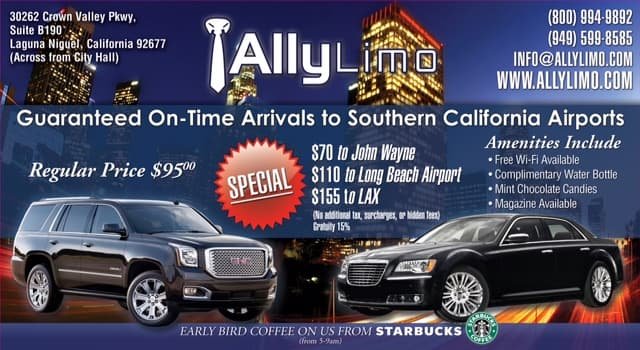Starting a limousine service in Massachusetts can be an exciting venture, but where do you begin? Did you know that Massachusetts has a thriving tourism industry, attracting millions of visitors each year? This presents a great opportunity for starting a limousine service, as there is a constant demand for luxury transportation to explore the state’s attractions and attend special events.
To start a limousine service in Massachusetts, you will need to consider several key aspects. Firstly, obtaining the necessary licenses and permits is crucial for operating legally. Additionally, investing in a fleet of well-maintained and comfortable vehicles is essential to provide a high-quality service. It is also important to establish strong relationships with local vendors and event planners to secure a steady stream of clients. By understanding the needs of your target market and providing exceptional customer service, you can thrive in the competitive limousine industry in Massachusetts.
- Research the Market: Study the demand and competition in your target area.
- Create a Business Plan: Outline your target market, services, and financial projections.
- Secure Financing: Determine your startup costs and explore funding options.
- Register Your Business: Decide on a legal structure and apply for the necessary licenses and permits.
- Purchase or Lease Vehicles: Invest in high-quality limousines that meet safety regulations.
- Market Your Service: Develop a strong online presence and network with local businesses.
Remember, starting a limousine service requires careful planning and attention to detail. Good luck with your venture!

How Do I Start a Limousine Service in Ma?
Welcome to our comprehensive guide on starting a limousine service in Massachusetts. If you’ve always been fascinated by luxury vehicles and have a passion for providing top-notch transportation services, then starting a limousine service can be a lucrative business venture. Whether you’re interested in providing airport transfers, special event transportation, or corporate chauffeur services, this guide will walk you through the essential steps to get your business up and running in the Bay State.
1. Understanding the Market and Regulations
Before starting a limousine service in Ma, it’s vital to conduct thorough market research to understand the demand and competition in your area. Identify your target market, such as corporate clients, wedding parties, or tourists, and assess their transportation needs. Additionally, familiarize yourself with the local regulations and licensing requirements for running a limousine business in Massachusetts. Contact the Massachusetts Department of Transportation (MassDOT) and local authorities to obtain the necessary permits and licenses.
Consider joining industry associations such as the National Limousine Association (NLA) to connect with industry professionals and stay updated on the latest trends and regulations. Building a strong network within the industry can provide valuable insights and support as you navigate the challenges of starting and growing your business.
Finally, create a business plan that outlines your target market, marketing strategy, pricing structure, and financial projections. A well-developed business plan will serve as a roadmap for your limousine service and help you secure funding if needed.
2. Fleet Acquisition and Maintenance
One of the crucial aspects of starting a limousine service is acquiring a fleet of luxurious vehicles. Depending on your target market and budget, choose vehicle models that align with your brand image and customer preferences. Consider offering a diverse range of vehicles, including sedans, SUVs, stretch limousines, and party buses, to cater to different client needs.
When purchasing vehicles, prioritize safety features, fuel efficiency, and comfort. Conduct regular maintenance checks and keep your fleet in optimal condition to ensure smooth operations and provide a reliable and safe experience for your clients. Establish partnerships with reputable auto repair and maintenance shops to address any maintenance issues promptly and minimize downtime.
Additionally, invest in comprehensive insurance coverage to protect your vehicles, passengers, and business from unforeseen accidents or incidents. Consult with insurance providers specializing in commercial auto insurance to choose the right coverage for your limousine service.
3. Hiring and Training Professional Drivers
Your drivers play a critical role in delivering exceptional customer experiences and building your limousine service’s reputation. Seek out experienced and professional drivers with a valid commercial driver’s license (CDL) who are knowledgeable about local routes and traffic patterns. Conduct thorough background checks, including driving records and criminal history, to ensure the safety and security of your customers.
Provide comprehensive training to your drivers, focusing on customer service, defensive driving techniques, and the proper handling of luxurious vehicles. Emphasize the importance of punctuality, professionalism, and personal grooming. Regularly review and update your driver training program to incorporate any new regulations or industry best practices.
Consider implementing a driver performance monitoring system to track key performance indicators, such as customer feedback, on-time arrivals, and vehicle maintenance compliance. Recognize and reward top-performing drivers to foster a positive and motivated work environment.
4. Marketing and Branding Your Limousine Service
Effective marketing and branding are essential to attract customers and establish your limousine service as a reputable and reliable provider. Create a compelling brand identity that resonates with your target market. Develop a visually appealing logo, website, and marketing materials that reflect the luxury and sophistication associated with limousine services.
Utilize both online and offline marketing channels to reach your audience. Develop a strong online presence by optimizing your website for search engines and using targeted online advertising. Leverage social media platforms to share content, engage with potential customers, and showcase testimonials and reviews from satisfied clients.
Offline marketing tactics, such as attending industry trade shows, sponsoring local events, and distributing business cards and brochures at hotels and airports, can also help raise awareness and generate leads. Consider offering special promotions or discounts to attract new customers and encourage repeat business.
5. Providing Excellent Customer Service
In the luxury transportation industry, exceptional customer service is paramount. Train your staff, including customer service representatives and dispatchers, to handle inquiries and bookings promptly and professionally. Implement a reliable reservation and dispatch system to ensure efficient communication with clients and drivers.
Deliver personalized services that cater to the unique needs and preferences of your customers. Offer additional amenities such as bottled water, Wi-Fi access, and charging ports in your vehicles to enhance the overall customer experience.
Solicit feedback from your clients and continuously strive to improve your services based on their suggestions. Building strong, long-term relationships with your customers can lead to repeat business and positive word-of-mouth referrals.
6. Expanding Your Business and Diversifying Revenue Streams
Once your limousine service is established and running successfully, consider expanding your business by diversifying your revenue streams. Explore opportunities to partner with local hotels, event planners, and travel agencies to secure consistent bookings and contracts.
Offer customized packages for special events, such as weddings, proms, and corporate outings. Provide point-to-point transportation, airport transfers, and hourly charters to accommodate a variety of client needs. Consider adding complementary services such as limousine rentals for special occasions or luxury tours to popular attractions to attract a wider customer base and boost your revenue.
Continuously monitor market trends and stay updated with emerging technologies in the transportation industry. Consider incorporating innovative features like mobile booking apps, GPS tracking, and in-vehicle entertainment systems to enhance your customers’ experience and stay ahead of the competition.
Premium Quality Vehicles and Exceptional Service
In summary, starting a limousine service in Massachusetts requires careful market research, compliance with regulations, acquiring and maintaining a quality fleet, hiring professional drivers, effective marketing, and delivering excellent customer service. By focusing on delivering premium quality vehicles and exceptional service, you can build a successful limousine service that stands out in the competitive market. Remember, consistency and attention to detail are key to establishing a reputable brand and building long-term customer relationships.
Key Takeaways: How Do I Start a Limousine Service in Ma?
- Research and understand the requirements and regulations for starting a limousine service in Massachusetts.
- Create a solid business plan outlining your target market, services offered, and financial projections.
- Obtain the necessary permits, licenses, and insurance to operate legally.
- Purchase or lease high-quality limousines that meet safety and comfort standards.
- Develop a marketing strategy to promote your limousine service and attract clients.
Frequently Asked Questions
Are you considering starting a limousine service in Ma? Here are some answers to common questions to help you get started:
1. What are the legal requirements for starting a limousine service in Ma?
Before starting a limousine service in Ma, there are some legal requirements you need to fulfill. Firstly, you will need to obtain the necessary licenses and permits. This includes a business license, commercial driver’s license (CDL), and chauffeur’s license. Additionally, you will need to register your business with the appropriate state and local agencies. It’s important to research and comply with all relevant regulations to ensure you’re operating legally and avoid any penalties or fines.
Furthermore, you may also need to consider obtaining proper insurance coverage, including liability insurance, to protect yourself, your passengers, and your vehicles. Consulting with an attorney or business advisor who is familiar with the specific regulations in Ma can provide valuable guidance and ensure you’re meeting all legal requirements.
2. How should I market my limousine service in Ma?
Marketing your limousine service is crucial for attracting customers in Ma. One effective strategy is to create a professional and visually appealing website that showcases your services, fleet, and contact information. Make sure your website is optimized for search engines to improve its visibility in online search results. Utilize social media platforms to promote your business, engage with potential customers, and share special offers or discounts. Encourage satisfied customers to leave positive reviews and testimonials online, as this can greatly influence the decision-making process for potential clients.
Networking with local businesses, such as hotels, event planners, and travel agencies, can also be beneficial. Establish partnerships or referral programs to encourage these businesses to recommend your limousine service to their customers. Additionally, consider participating in industry events, trade shows, or bridal fairs to increase your visibility and connect with potential clients directly.
3. How do I choose the right fleet for my limousine service in Ma?
Choosing the right fleet for your limousine service in Ma is crucial to cater to the needs and preferences of your target market. Start by conducting market research to identify the demand for different types of vehicles, such as traditional limousines, SUV limos, or party buses. Consider factors like the size of the vehicle, amenities offered, and the overall image you want to portray. Balancing affordability with quality is also important when selecting your fleet.
Additionally, staying updated with the latest trends in the limousine industry can help you offer unique and in-demand vehicles. Stay informed about new models, technological advancements, and customer preferences to ensure your fleet remains competitive and appealing to potential clients.
4. How should I price my limousine service in Ma?
Pricing your limousine service in Ma requires careful consideration of various factors. Start by assessing your costs, including vehicle maintenance, fuel, driver wages, insurance, and overhead expenses. Factor in the market demand, competition, and the value you provide to customers through quality service and special amenities. Research the pricing strategies employed by other successful limousine services in Ma to gain insights and adjust your pricing accordingly.
Consider offering different packages or pricing tiers to cater to various customer needs and budgets. This could include hourly rates, special event packages, or discounted rates for repeat customers. It’s important to strike a balance between profitability and offering competitive prices that attract and retain clients.
5. What customer service strategies can I implement for my limousine service in Ma?
To excel in the limousine service industry in Ma, exceptional customer service is key. Start by training your drivers and staff to provide a high level of professionalism, courtesy, and attentiveness. Effective communication with customers is vital, ensuring prompt and clear responses to inquiries or concerns.
Offering personalized experiences and anticipating customer needs can provide a memorable and positive impression. This includes amenities like complimentary bottled water, phone chargers, or a selection of music options. Additionally, implementing a customer feedback system can help you evaluate and improve your services based on customer input, ensuring continuous customer satisfaction.






